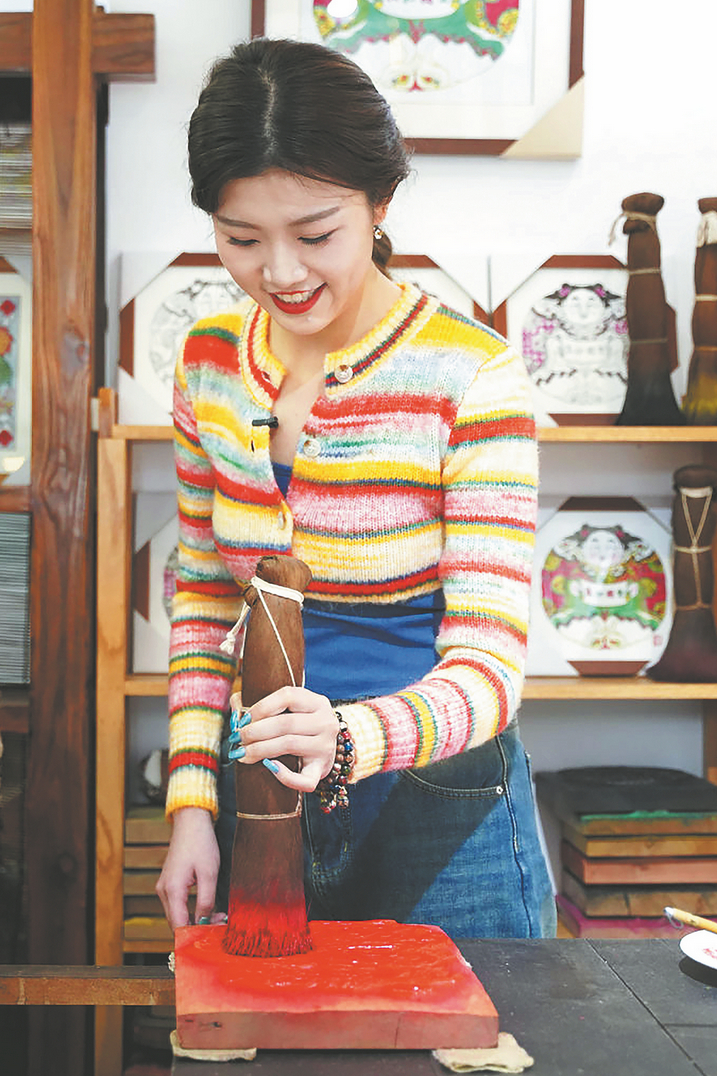

Growing up in Suzhou, I was surrounded by local Chinese New Year traditions. However, I took them for granted, never really intending to delve deeper into their significance.
While filming for the China Daily program Strait Forward recently, I had the pleasure of exploring these traditions with my friend Chen Yizhen from Taiwan. These traditions were mostly new to her, but it seemed that I was experiencing them for the first time too, gaining a profound understanding of Spring Festival.
One highlight was Suzhou's Taohuawu Woodcut New Year Prints, a national intangible cultural heritage. Although I grew up amid these vibrant and warm paintings, sporting their typical round and plump figures, I never knew their history. Together, Chen and I visited a workshop on Pingjiang Road, a historic and iconic street in the city, where a local artist shared the history of the art form and the stories of artists who have passed down this heritage since the Ming Dynasty (1368-1644).
Our excitement peaked when we had the chance to try painting one ourselves. Chen mentioned they also have Chinese New Year paintings in Taiwan, but they're mostly machine-printed. For me, despite having seen a lot of these prints, trying my hand at one was also a first. As I carefully dealt with the intricate artistry, I couldn't help but feel that only by experiencing these ancient skills firsthand can one truly sense the strong Lunar New Year atmosphere and appreciate the holiday's beautiful significance.
Participating in making Suzhou pastries was equally delightful. At a local restaurant, Chen and I learned to create Suzhou-style sweet square rice cakes. For me, it was about relishing the nostalgic flavor of my childhood and gaining a renewed impression of how my favorite snack was made. For Chen, it was a fascinating cultural discovery: there are similar snacks in Taiwan, and her favorite not only looks just like the Suzhou rice cakes but is chewy too!
Looking at Suzhou's Chinese New Year traditions through Chen's eyes provided a brand new perspective, allowing me to understand and appreciate them more.
Suzhou boasts numerous intangible cultural heritage projects. I hope that more young people from different parts of China will come to my hometown, breathe new life into our traditional culture, and showcase its allure to the world.
Written by Wang Linghan, a 20-year-old student at Nanjing Normal University.